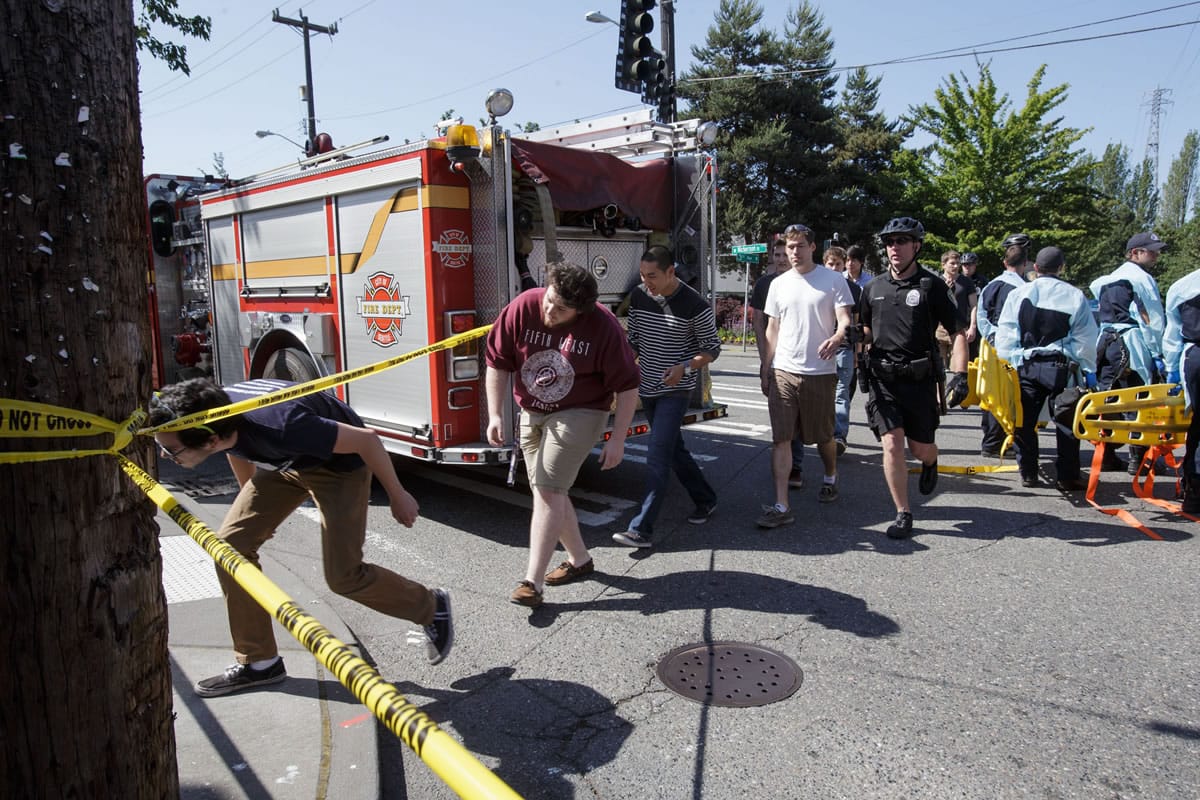SEATTLE — Colleges and universities in Washington state didn’t require the wake-up call from Umpqua Community College. They tightened their preparations for campus attacks after the June 2014 fatal shooting at Seattle Pacific University.
All of Washington’s public four-year schools have emergency alert systems that send text and email messages to students and staff, as well as parents who opt-in to the system. The alerts warn of police action near campus, as well as on-campus hazards.
Most schools also have other kinds of alert systems, including campus loudspeakers.
Students and staff at Washington State University in Pullman are trained for all kinds of emergencies, including active shooters. WSU uses students to supplement professional campus security.
The university used federal dollars to spread the training to more people across campus, according to Michael Gaffney, emergency management coordinator at WSU in Pullman.
More than 20 years ago, WSU had two bomb scares, including a device that exploded in a dorm room. In the past four years, three gun incidents have led to campus-wide alerts, none of which turned deadly.
After the shooting last year at Seattle Pacific University, police said preparation at the Christian college made a difference.
An SPU student tackled and pepper-sprayed a man who was reloading a shotgun after shooting several students. Others helped disarm and hold the shooter down until police arrived.
Assistant Seattle Police Chief Paul McDonagh said he believed more people would have been killed if the university had not been so well prepared.
The alert system at the University of Washington has mostly told students and staff about gas leaks and hazardous materials, but several times last year, students were warned to stay away from crime situations.
Several hundred people around campus are trained at least once a year in emergency drills from bombs to earthquakes, said UW spokesman Norm Arkans.
At Washington’s 34 community and technical colleges, security measures vary from campus to campus, said Laura McDowell, spokeswoman for the Washington State Board for Community & Technical Colleges. Each has its own security plans, she said, and some do regional tabletop exercises or mock drills with the Federal Emergency Management Agency.
Community colleges in Washington are not authorized to have commissioned police forces, the way four-year institutions can. They are allowed to hire campus security officers. All community and technical schools ban guns, though some have exceptions for law enforcement performing official duties or for students and staff with concealed weapons permits who want to keep their guns locked in a car on campus, McDowell said.
McDowell acknowledged that even the best planning may not prevent a mass shooting.
“No matter what you do, there can be somebody with serious mental health problems that can come on campus and do horrendous things,” she said. “None of us are immune from that possibility.”



